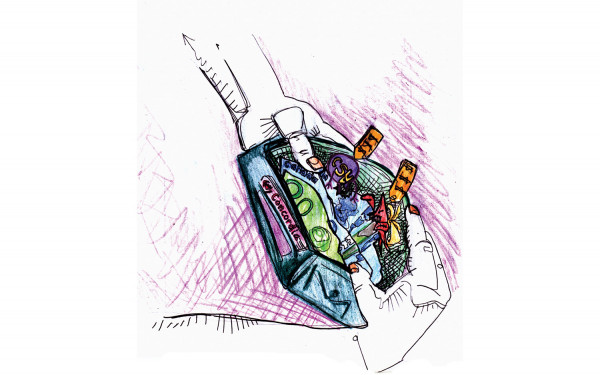Editorial: The Link’s Take on the CSU Elections and Referendum Questions
The Concordia Student Union elections are now underway.
From March 28 to March 30, undergraduate students will be asked to vote for the next team of elected officials and referendum questions.
Before explaining our take on the situation, we want to make it clear that our managing editor Jon Milton—the brother of Alexander Milton, a candidate for Team Connect—left the newsroom during our discussion surrounding a possible CSU team endorsement.
After having reviewed every team that is running in these elections, we have come to the conclusion that we will not be endorsing any of them. We did not feel like there was a clear, ideal candidate who stood out among the rest—but that doesn’t mean that we feel that the candidates don’t have anything positive to offer.
On the other hand, as a team and based on our past reporting, we have collectively decided to endorse certain referendum questions.
On a Sanctuary Campus: Yes
In a past editorial published on Nov. 28, we mentioned that we are in favour of a CSU motion calling on Concordia to become a sanctuary campus. In that motion, they demanded that the university not collaborate nor provide information on students or faculty to the Canadian Border Services Agency. They also demanded that the CBSA not be allowed to enter Concordia’s campus in order to protect undocumented members of its community.
On Nov. 15, a CBSA patrol vehicle was parked outside Concordia’s Hall building, for what Concordia spokesperson Chris Mota called a “courtesy visit.” The CSU said that the visit had larger implications and that they were gathering information on a student. This prompted them to add a migrant justice position to their Positions Books. This enables them to discuss becoming a sanctuary campus with the university.
Following that incident, we agree that undocumented students and faculty members from Concordia should be protected.
On a Sustainable Curriculum: Yes
According to CSU Sustainability Coordinator Lana Galbraith, the CSU Positions Book currently focuses on advocating for a sustainability major. If this passes, the CSU will push to have sustainability courses open to all undergraduate students.
As of now, there is nothing in the CSU’s mandate regarding the addition of Indigenous-themed courses into the curriculum for all undergraduates. During Canada’s 150th anniversary, when we are all looking back at our history, it’s important to look at it from all perspectives. Including courses on Indigenous studies would be a step forward in further understanding the history of our country.
We support this change in the mandate as we think that having more access to courses on sustainability and Indigenous studies would benefit Concordia’s undergraduate students.
On the Non-Hierarchical Bylaw Changes: Yes
If passed, the new non-hierarchical structure of the CSU will take some power from the general coordinator—formerly known as president—and distribute it among the CSU’s executives. One example is the modification these bylaw changes would bring to the president’s decree.
Under current rules, the president would have the power to make decisions on their own by way of decree. Under the CSU’s bylaw 7.7—in the president’s mandate—the decree would be made if a special council meeting could not be made or if it had not reached quorum.
The proposed change would see bylaw 7.7 taken from the president’s mandate and renaming it as the executive’s decree. Under the new decree, the general coordinator would require the approval of three other executives to pass.
We think mitigating power from the hands of the general coordinator and dispersing it among the members of the executive team is a positive change, so we support this referendum question.
That being said, it is crucial that there be a follow up on how fairly the power is being distributed. Despite this step towards the right direction, elected officials must be held accountable for their decisions and how they go about functioning within this new environment.
On the Greenhouse Fee-Levy Increase: Abstain
The Concordia Greenhouse is looking to double their fee-levy from 12 cents to 24 cents per credit. The reason for the proposed increase is for the renovations, which they say will cost at least $240,000. The increase would also fund bursaries for students who would like to participate in programs at the City Farm School.
While we do support the renovations of the Greenhouse, we as a team are not convinced that a fee-levy increase to fund the renovations is the best for students. A fee-levy increase is a permanent deal and renovations are temporary. It would make more sense for them to apply for a grant and rethink their fee-levy increase in order to fund the bursaries they are looking to create.
There were disagreements among our team regarding the ways the Greenhouse hoped to obtain funds.


_600_375_90_s_c1.jpg)

